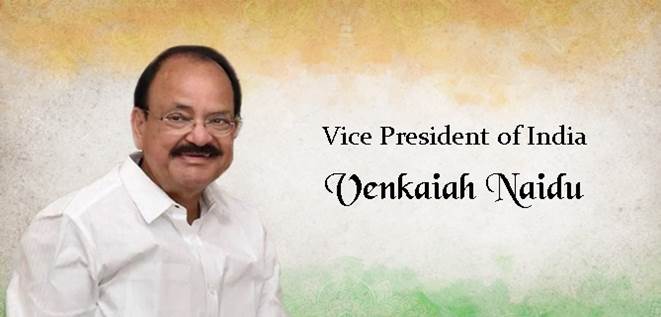Description

Copyright infringement not intended
In News
- The Election Commission of India has announced the election for the post of the Vice-President will be held on 6th August.
- The tenure of the present vice-president will end on 10th August.
- The Commission stated that the Lok Sabha Secretary-General will be appointed as the Returning Officer.
Vice-President
- The Vice-President occupies the second-highest constitutional office in the country.
- This office is modelled on the lines of the American Vice-President.
- Article 63: There shall be a Vice-President of India. The office cannot remain vacant.
- The Vice-President holds office for a term of five years from the date on which he enters his office.
- He can continue to be in office, irrespective of the expiry of the term until the success or assumes office.
- He can resign from his office at any time by addressing the resignation letter to the President.
- A formal impeachment is not required for his removal.
- He can be removed by a resolution of the Rajya Sabha passed by an absolute majority (ie, a majority of the total members of the House) and agreed to by the Lok Sabha.
- He is also eligible for re-election to that office. He may be elected for any number of terms.
Election
- The Electoral College is different from the Electoral College for the election of the President in the following two respects:
- It consists of both elected and nominated members of the Parliament (in the case of the president, only elected members).
- It does not include the members of the state legislative assemblies (in the case of the President, the elected members of the state legislative assemblies are included).
Qualification
- To be eligible for election as Vice-President, a person should fulfill the following qualifications:
- He should be a citizen of India.
- He should have completed 35 years of age.
- He should be qualified for election as a member of the Rajya Sabha.
- He should not hold any office of profit under the Union government or any state government or any local authority or any other public authority.
- He should not be a member of either House of Parliament or a House of the state legislature.
- If any such person is elected Vice-President, he is deemed to have vacated his seat in that House on the date on which he enters his office as Vice-President.
- He should not hold any other office of profit.
The function of the Vice President
- He is the Chairman of the Rajya Sabha. Vice-President presides over the Rajya Sabha.
- The Vice-President acts as President when there is a vacancy in the office of the President.
- The vacancy may occur for reasons of death, resignation, removal by impeachment or otherwise.
- He discharges the functions of the President when the President is unable to perform his functions.
- The reasons may also include the absence of the President from India or illness or some other cause.
- He is not a member of the Rajya Sabha; he has no right to vote but can exercise a ―Casting Vote.
- When Vice-President is acting as, or discharging the functions of the President, have all the powers and immunities of the President and be entitled to such emoluments, allowances, and privileges as may be determined by the Parliament by law and, until provision in that emoluments, allowances, and privileges as are specified in the Second Schedule.
- When he acts as the President, he will not draw the salary of the Chairman of the Council of State as he ceases to perform these duties as the Chairman.
https://epaper.thehindu.com/Home/ShareArticle?OrgId=GRR9VSJUV.1&imageview=0
1.png)
https://t.me/+hJqMV1O0se03Njk9













